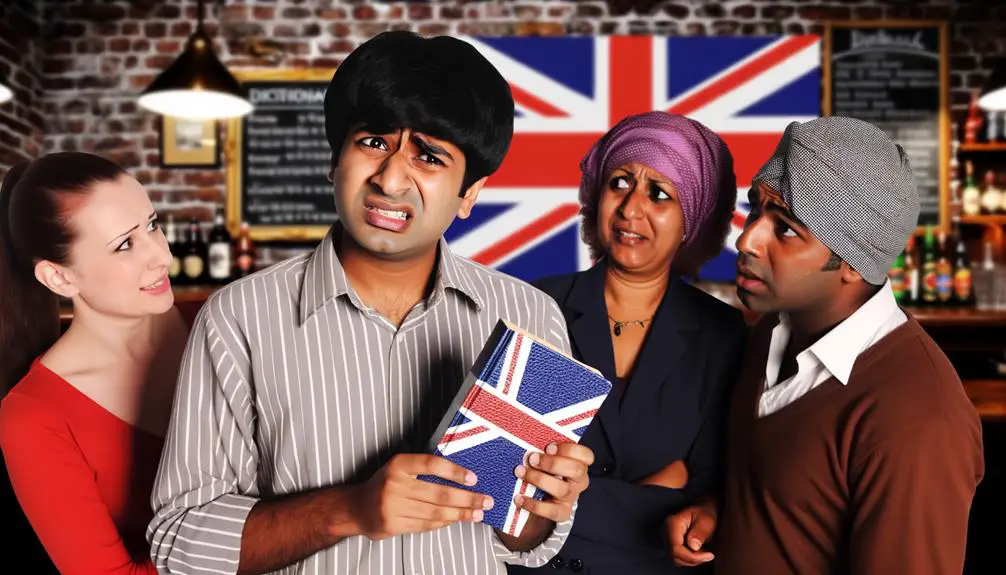In British slang, 'twat' carries a range of meanings, initially rooted in Middle English as a vulgar term for a woman's genitalia. Its connotations have greatly evolved, reflecting changes in societal attitudes towards slang. Today, you can hear it used from insult to playful banter, depending on the context and the speaker's intonation. Regional variations play an important role, with pronunciation and intensity differing across the UK. Its place in literature and popular culture highlights its journey into more accepted use, showcasing the linguistic flexibility of slang. Exploring its controversial nature requires understanding its rich history and nuanced application—revealing layers of cultural insight.
The Origins of 'Twat'
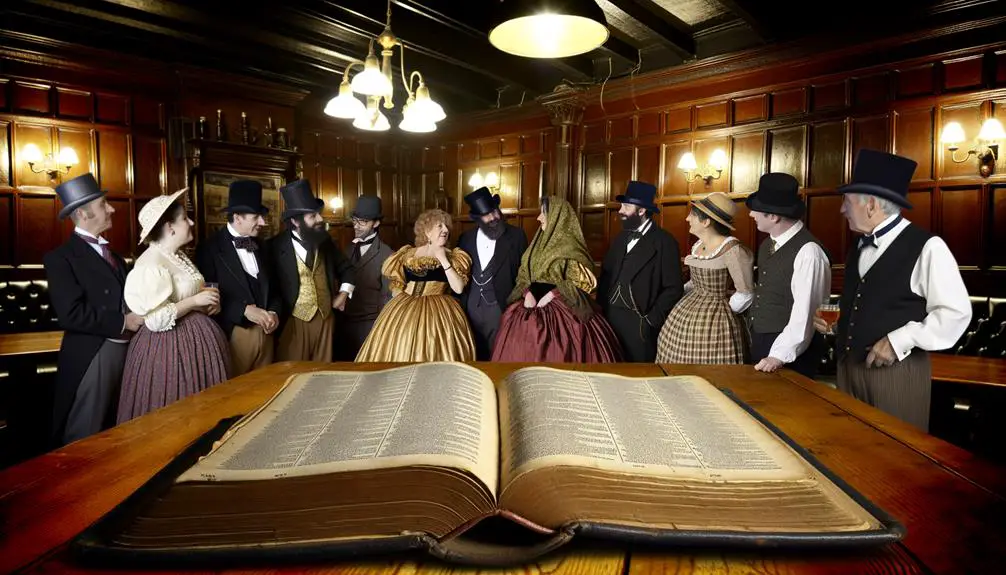
The term 'twat' has a complex lineage, tracing back to Middle English, though its exact origins and evolution into modern usage are subject to scholarly debate. You'll find that etymology debates often center around its linguistic roots, with some experts suggesting it originated as a vulgar term for a woman's genitalia, while others propose different, less offensive beginnings. These discussions explore the intricacies of language evolution, highlighting how words can shift in meaning and connotation over time.
Exploring the linguistic roots, you encounter a tapestry of possibilities. Historical documents hint at its use in literature and common speech, but pinpointing when it took on its current connotations is tricky. The debates shed light on the fluid nature of language, illustrating how societal changes, cultural shifts, and even humor can influence the development of a word.
In essence, understanding 'twat's' origins isn't just about tracing a word back through time. It's about unraveling the layers of language, seeing how it mirrors societal attitudes, and recognizing the role of cultural context in shaping the words we use today.
Understanding Its Usage
Delving into its usage, you'll find 'twat' embodies a spectrum of meanings, ranging from an insult to playful banter, depending on context and tone. Within the UK, its application can veer from a harsh critique of someone's intelligence or decisions to a light-hearted jab among friends. This variance largely hinges on the social dynamics at play and the mutual understanding between the parties involved.
International perceptions of 'twat' diverge greatly from its native interpretation. Outsiders may perceive it as more offensive, not fully grasping the nuance that British usage affords it. This discrepancy underscores the importance of understanding cultural context when exploring slang.
Etymology debates further enrich the conversation, as the origins of 'twat' are muddied by folklore and linguistic evolution. Some argue its roots are deeply vulgar, while others suggest a more benign beginning, contributing to its flexible application today. This historical ambiguity plays into its current usage, allowing it to straddle the line between offensive and endearing, depending on who's using it and how.
Understanding 'twat' in its full complexity requires a nuanced appreciation of both its linguistic history and the social dynamics that shape its use in contemporary British culture.
Variations Across the UK
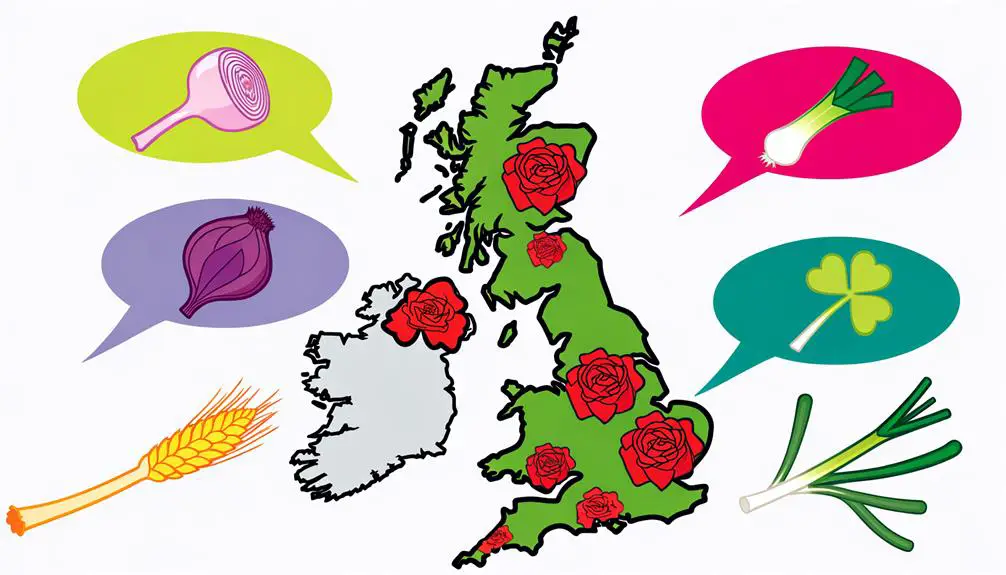
As you explore the landscape of British slang, you'll notice the term 'twat' exhibits notable variation across the UK. Regional pronunciation differences not only affect how the word sounds but can also influence its perceived intensity.
Moreover, its usage and contextual meanings shift greatly from one city to another, reflecting the diverse linguistic culture of the regions.
Regional Pronunciation Differences
Across the UK, you'll find that the pronunciation of 'twat' varies greatly from region to region, reflecting the rich tapestry of local dialects and accents. Dialect analysis and pronunciation guides reveal intriguing nuances in how this word is spoken, illuminating the diversity of the English language within the British Isles.
| Region | Pronunciation |
|---|---|
| Southeast England | 'twæt' |
| Scotland | 'twɑːt' |
| Northern England | 'twat' (flat a) |
| Midlands | 'twot' |
| Wales | 'twæt' or 'twɑːt' |
This table showcases the auditory journey 'twat' undergoes across the UK. Each variation not only signifies a geographic location but also embeds itself into the cultural fabric of the region, offering a window into the dynamic world of British slang.
Usage in Various Cities
Exploring the use of 'twat' in various British cities reveals how its meaning and connotation can shift, reflecting local linguistic identities and social attitudes. In some places, it's a light-hearted jest among friends, melding into local humor trends with a soft edge.
Elsewhere, it morphs into sharper city-specific insults, carrying a weightier disdain that punctuates heated exchanges. This variability isn't just about geography; it's a mirror to the community's pulse, showcasing how language evolves in the crucible of city life.
While the core of 'twat' remains recognizable, its flavor is distinctly local, seasoned by the collective experiences and attitudes of its users. This phenomenon highlights the dynamic nature of slang, adapting and resonating differently within the tapestry of UK cities.
Contextual Meanings Shift
Delving into the UK's diverse linguistic landscape, you'll find that the meaning of 'twat' shifts considerably from one region to another, reflecting the nuanced ways in which local cultures shape language. This variation isn't just amusing trivia; it has real social impact, influencing how individuals interact and how communities perceive themselves and others.
Linguistic debates around the term often highlight these regional differences, shedding light on the complex interplay between language, identity, and place. In some areas, 'twat' might be thrown around in jest, a harmless jibe among friends. Yet, in others, it carries a heavier, more derogative connotation. Understanding these alterations is vital for anyone exploring the UK's rich tapestry of dialects and social etiquettes.
'Twat' in Popular Culture
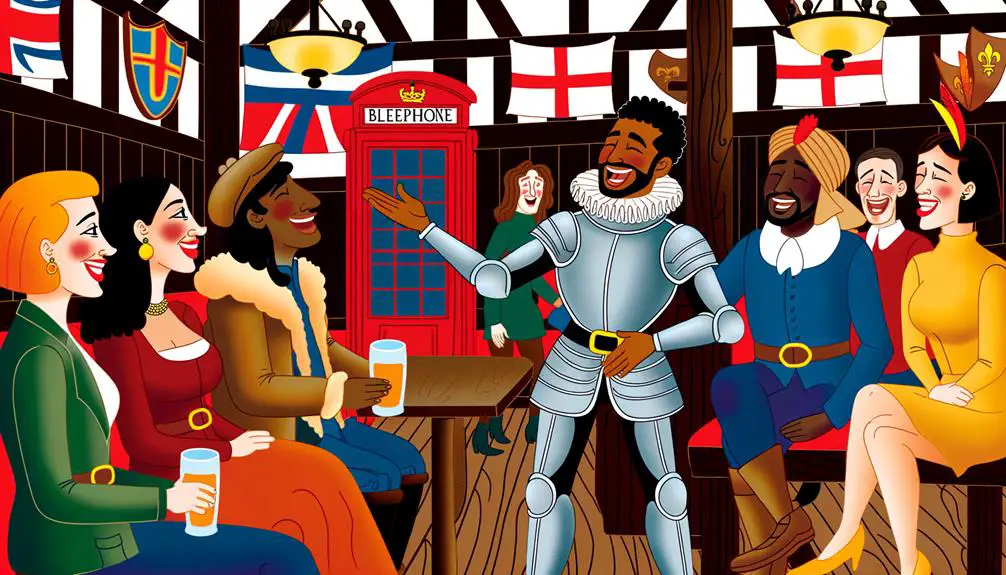
You'll find that 'twat' has cemented its place in popular culture, particularly through iconic TV references and musicians' lyrics.
These instances offer a unique lens to analyze its evolving connotations and impact on audiences.
Iconic TV References
The term 'twat' has made its mark in popular culture, especially through its usage in iconic TV shows where it often conveys a blend of humor, disdain, or camaraderie. This slang has sparked interesting celebrity reactions and fan interpretations, often leading to memorable TV moments.
- Celebrity reactions to being called 'twat' on live TV provide insight into the nuances of British humor and decorum.
- Fan interpretations of scenes involving the term deepen understanding of character relationships and plot developments.
- Scriptwriters cleverly use 'twat' to add authenticity to dialogue, reflecting real-life speech patterns.
- The term's varying intensity, from playful banter to serious insult, showcases its versatility in dramatizing on-screen interactions.
Analyzing these instances reveals the cultural significance and impact of 'twat' in shaping television narratives.
Musicians Usage Analysis
Exploring how musicians incorporate 'twat' into their lyrics offers a unique lens on its cultural resonance and linguistic versatility in popular culture. The term's use varies widely across genres, reflecting both the artists' intent and the broader cultural context. Genre influence plays a significant role in how 'twat' is perceived, with some genres embracing its rawness, while others may only hint at its presence due to lyric censorship.
| Genre | Approach to 'Twat' |
|---|---|
| Punk Rock | Direct and Unfiltered |
| Hip Hop | Metaphorical, Censored |
| Pop | Rare, often Euphemized |
This table illustrates the spectrum of usage, from punk's rebellious clarity to hip hop's nuanced storytelling and pop's cautious navigation. Each genre's approach sheds light on the term's versatile role in musical expression and its ongoing negotiation within the landscape of lyric censorship.
The Controversial Side
While 'twat' may seem like a playful term in some contexts, it's important to acknowledge its potential to offend and its controversial nature in various social settings. The word's usage can navigate a fine line between casual banter and outright disrespect, depending on the audience's perception and the intent behind its use. This duality introduces a complex layer of societal dynamics and possible legal implications when the term crosses into the domain of abusive language or harassment.
Understanding the controversial side of 'twat' involves considering several key points:
- Legal implications: In some jurisdictions, using 'twat' in a derogatory manner could be classified as verbal harassment or defamation, potentially leading to legal repercussions.
- Societal impact: The term can reinforce negative stereotypes or contribute to a hostile environment, especially in mixed company or professional settings.
- Cultural sensitivity: What's deemed acceptable in one culture or community might be offensive in another, highlighting the importance of context.
- Generational differences: Younger generations mightn't perceive 'twat' with the same level of severity as older ones, leading to misunderstandings or conflicts.
Navigating the use of 'twat' in conversation requires a careful balance of understanding its historical context, current societal norms, and the potential impact on those involved.
Comparisons With Other Slang
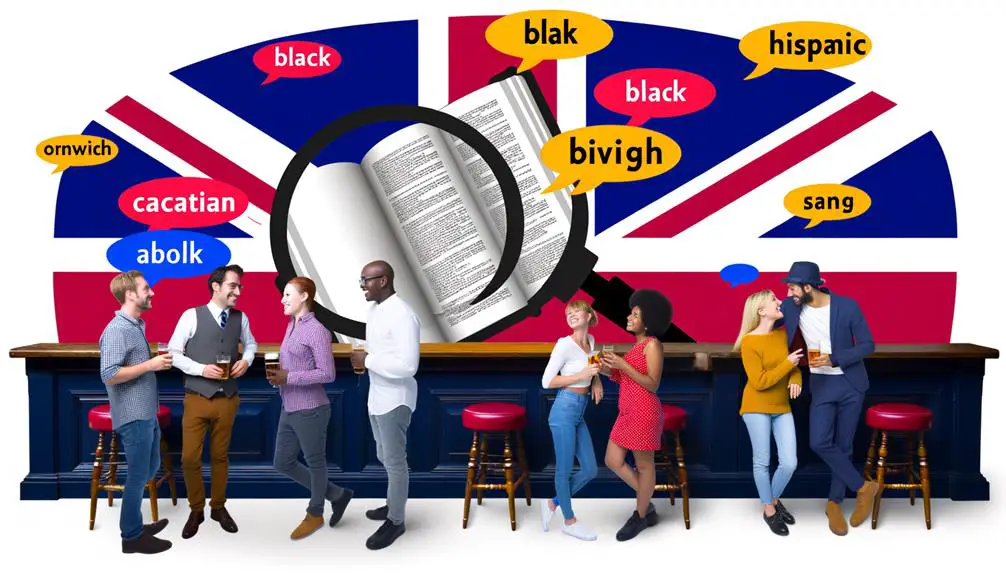
Understanding the complex nature of 'twat' sets the stage for comparing it with other slang terms that carry their own unique connotations and societal impacts. The world of slang is vast, with each term carrying layers of meaning influenced by culture, geography, and social attitudes. 'Twat,' similar to other slang, is embroiled in etymology debates, with scholars and laypeople alike delving into its origins and transformations. This exploration into its roots highlights a commonality among slang terms: their meanings and uses evolve over time and across borders.
When you consider global adaptations, 'twat' finds both parallels and stark contrasts with slang in other English-speaking regions. For instance, while it might share a derogatory nature with terms like 'idiot' or 'prat' in the UK, its level of offense can vary significantly in places like the United States or Australia, where its impact might be lessened or heightened due to cultural differences in perception and usage.
This comparative analysis reveals the fluidity of language and slang's ability to reflect societal norms, taboos, and values. Each slang term, including 'twat', serves as a linguistic mirror, offering insights into the attitudes and dynamics of the communities that use them.
The Evolution Over Time
How has 'twat' evolved over time, reflecting shifts in societal norms and linguistic practices? Initially, its use was more confined, often seen within certain social circles or regions. However, as time passed, 'twat' began to permeate more widely across the British linguistic landscape. This evolution showcases not just a change in the word's frequency of use but also in the contexts in which it's deployed.
- Etymology debates: Scholars have long debated the origins of 'twat', suggesting various sources and influences. This ongoing discussion highlights how the word's background is as complex as its evolution.
- Literary appearances: 'Twat' has made its mark in literature, appearing in works from different eras. These literary appearances serve as milestones, marking the word's journey through the ages and its gradual acceptance into more formal contexts.
- Shift in societal norms: Changes in societal attitudes towards slang and colloquial language have played a significant role in 'twat's evolution. What was once perhaps considered taboo or vulgar has, in some settings, become less so.
- Linguistic practices: As language practices evolve, so too do the words we use. 'Twat' has shifted in some respects from insult to a term with a broader, sometimes less negative connotation.
This journey through time illustrates the dynamic nature of language and how words like 'twat' adapt and change.
Acceptance in Modern Language
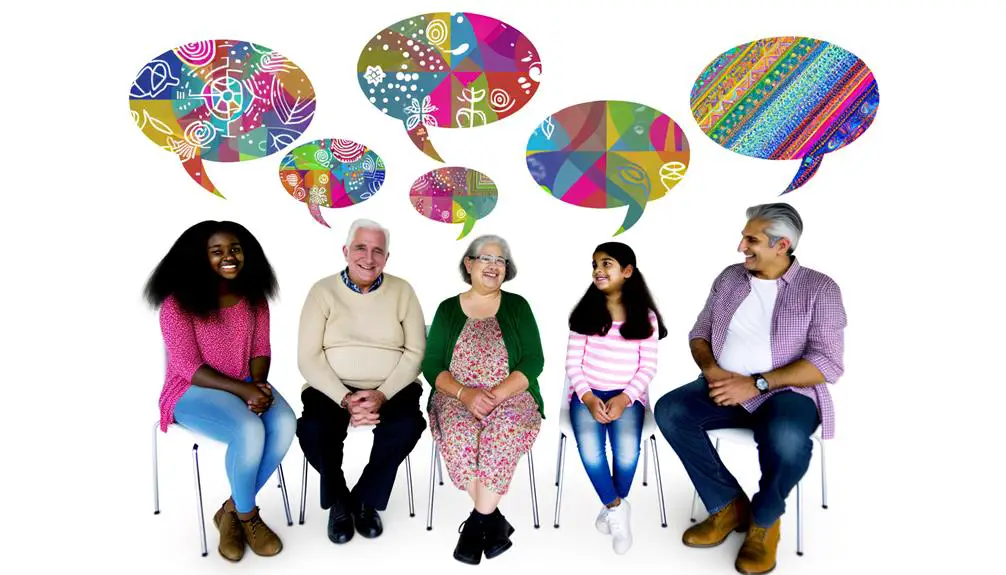
Reflecting broader societal shifts, 'twat' has gained acceptance in modern language, illustrating a significant change in its perception and usage. This evolution isn't accidental but stems from various global influences and a nuanced understanding of censorship's impact.
You've likely noticed how digital platforms and media from around the world have contributed to a more relaxed attitude towards words that were once considered strictly taboo. This exposure hasn't only desensitized audiences but also fostered a curiosity about the linguistic and cultural contexts that shape language use.
Moreover, the debate around censorship has played a pivotal role. As societies grapple with the balance between freedom of expression and the need to protect against offensive language, 'twat' finds itself in a unique position. It's become a test case for how language evolves in response to these pressures. You're witnessing a word shift from being almost universally shunned to one that's used in casual conversations, and even in some professional settings, without the blink of an eye.
This acceptance in modern language speaks volumes about changing norms and the fluid nature of what's considered acceptable speech. It underscores how global influences and censorship's impact are reshaping our linguistic landscape, making you rethink the power and flexibility of words.
Frequently Asked Questions
How Do Educators and Language Experts Recommend Addressing the Use of 'Twat' in Educational Settings or in Discussions With Young People?
You should adopt a clear language policy and classroom strategies when addressing sensitive words. Experts suggest a balanced approach, focusing on understanding and respect, without shaming or ignoring the word's impact on young people.
Have There Been Any Notable Legal Cases or Controversies Where the Use of 'Twat' Played a Central Role, Particularly in Workplace Discrimination or Harassment Suits?
You're exploring if there've been legal cases where "twat" played a key role, particularly in workplace issues. Legal interpretations vary, but defamation cases sometimes hinge on such terms. Analyzing these provides insights into workplace dynamics and legal boundaries.
What Psychological Impact Does the Casual or Derogatory Use of the Word 'Twat' Have on Individuals or Communities, Especially Concerning Gender Dynamics?
Using derogatory language, including certain terms, can reinforce social stigma and negatively impact gender dynamics. It's part of language evolution, but understanding its effects helps you navigate conversations more thoughtfully and inclusively.
Are There Any Notable Campaigns or Movements That Have Sought to Reclaim or Redefine 'Twat' in a Positive or Empowering Light?
You'll find that movements focused on cultural reclamation and positive branding of derogatory terms haven't prominently targeted 'twat.' Efforts typically aim at broader gendered slurs, leaving this specific word less explored in redefinition campaigns.
How Does the Use of 'Twat' in Digital Communication, Such as Social Media or Texting, Differ From Its Traditional Spoken Usage, and What Implications Does This Have for Understanding Online Discourse?
In digital communication, words evolve, adapt, and sometimes soften. Online linguistics and cultural adaptation reshape 'twat' from its traditional use, offering insights into how social media and texting influence our understanding of language and discourse.
Conclusion
In exploring the journey of 'twat' through the tapestry of British slang, you've uncovered its multifaceted nature. From its murky origins to its controversial bite, this word mirrors the evolution of language itself.
As a chameleon of the linguistic world, it's adapted and persisted, reflecting societal shifts and cultural nuances. While it may sit on the fringes of polite conversation, its acceptance in modern language underscores the dynamic, ever-changing nature of communication.
Like a river carving through rock, 'twat' has etched its mark on the landscape of British slang.

